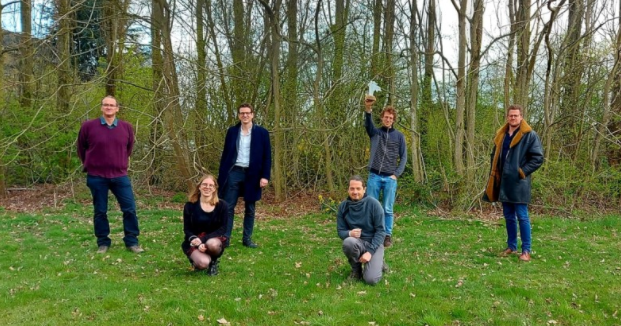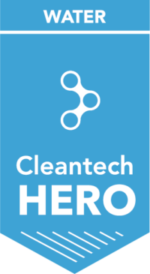BOSAQ
Cleantech Hero Watertechnology




Learn more about this report
Because change is the only constant in life, looking back and examining how the cleantech industry has evolved is crucial for anyone interested in cleantech as a whole.
Entrepreneurs and investors can detect trends and/or opportunities in the market. Professionals can identify which skills will be in demand and adapt their careers accordingly. Policy makers can identify industries where additional incentives are needed or government support is no longer necessary.
In this section, we look at the evolution of the sector in Flanders as a whole over 10 years, and compare the 9 sub-domains with the state of the sector as reported in the previous year. This analysis is based on data published on 1/11/2020 for the year 2019.
Stakeholders were divided into 4 categories:
Pioneers: Organisations that apply cleantech within their production process
Enablers: Organisations that enable the cleantech ecosystem
Tech Providers: Organisations that manufacture and sell cleantech that will enable customers to contribute to environmental goals
Implementors: Organisations who help other companies to adopt cleantech
The number of cleantech stakeholders considered in this study has increased significantly (from 1024 stakeholders in 2019 to 1503 in 2020). This increase is a result of an ever-improving screening process, and therefore does not reflect sudden growth in the industry. Steps have been taken to ensure that the comparisons remain relevant.
According to the quote "Never let a good crisis go to waste", the current recession, caused by COVID-19, creates an interesting opportunity for strengthening the economy and making it more sustainable. There is much potential for this, including a better approach to buildings, the built environment and long-term planning for land use. The current efforts in the reforestation of Flanders and the debate around the concrete stop show that this is already being addressed. But there is more. Because citizens interact with their homes and their living environment on a daily basis, a lot of attention is automatically paid to the quality aspect in the short and long term. It is precisely this involvement that makes it possible to take steps forward. Experts highlight the importance of sustainability and cleantech in the fields of energy, water and circularity in the cross-section of buildings and the built environment. Maarten De Groote explains how buildings can make their energy consumption more sustainable by application of innovative cleantech solutions. Also circularity, contributed by Wim de Backer, and a smart approach of ground water drainage on construction sites (contributed by Alain Ducheyne) can significantly reduce the sector’s footprint. Marianne Stranger's contribution shows how great the impact of buildings is on our mental well-being and physical health. Finally, the interview with Robin Bruninx focuses on Encon's Infinity building as a practical example of integrated solutions.

The six Flemish spearhead clusters, Catalisti (chemicals and plastics), Blue Cluster (blue economy), Flanders Food (agro&food), Flux50 (energy), SIM (materials) and VIL (logistics), are all working on cleantech in Flanders. Numerous projects are initiated for research and development, for example on new materials, the reuse of materials, low-CO2 energy production, or the logistical organisation for reuse.
Moreover, the spearhead clusters work on projects that exceed the scope of their own spearhead cluster. By initiating projects at the intersection of two or more domains, Flanders can take an even further step in cleantech. VLAIO (Flanders Innovation & Entrepreneurship) gives an extra incentive by also providing funds for this.
Within the project work of the clusters, a total of 26 projects were approved in 2020 for aid to the tune of around 30 million euros within, or related to, the Circular Economy or climate/energy. Together with companies, knowledge institutions and universities, the Catalisti spearhead cluster translates the climate ambitions of the Flemish government into so-called Moonshot projects which, together, form a future-oriented industrial innovation programme. In 2020, 13 moonshot projects were approved with a total subsidy size of 19.1 million euros.
Who says internationalisation, also says Flanders Investment & Trade. Claire Tillekaerts, at the helm of FIT, explains the expansion of the Science & Technology Offices and the importance of internationalisation for our Flemish companies. Flanders is at the top of European and worldwide innovative regions, and that also includes cleantech. Qpinch & Inopsys are good examples of Flemish cleantech companies that are conquering the world.
Frans Snijkers, director of Cleantech Flanders, shines his light on the Green Deals, both at European and Flemish level, and explains why they represent great opportunities.
Finally, we look at the new maritime research centre in Ostend where new testing infrastructure is available, giving a new boost to opportunities for both researchers and companies.

Innovative cleantech solutions deserve to be put in the spotlight. Four times a year, we award a company or organisation the title of Cleantech Hero, each time in a different cleantech domain.

